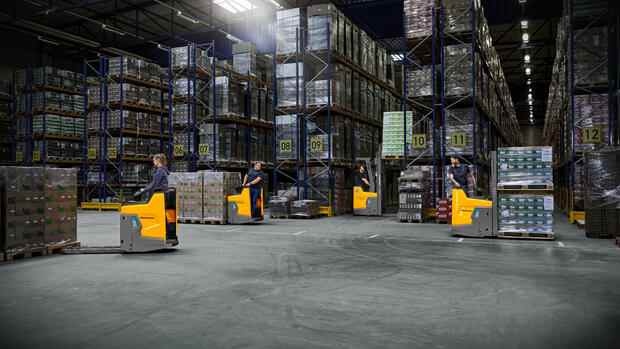The economic slowdown is having an increasingly negative impact on companies’ willingness to hire.
(Photo: obs)
Berlin In August, the German economy shrank more than it had since the beginning of the corona pandemic more than two years ago due to high inflation and rising interest rates. The purchasing managers’ index for the private sector – industry and the service sector together – fell by 0.5 to 47.6 points.
This is the lowest level since June 2020, said the financial services provider S&P Global on Tuesday in its monthly survey of around 800 companies. The barometer, which is widely observed on the financial markets, is thus well below the 50 mark, from which point it signals growth. Economists surveyed by Reuters had even expected a somewhat sharper decline to 47.4 jobs.
According to S&P economist Phil Smith, the data paints “a bleak picture of the German economy”. “The ongoing weakness in the industry was amplified by the slowdown in the service sector,” said the expert. According to the survey participants, high inflation and higher interest rates in particular have had a massive impact on demand.
The economic slowdown is having an increasingly negative impact on companies’ willingness to hire. The increase in jobs in August was as meager as it has been for almost a year and a half. There was also the first decline in backlogs in more than two years. This could put an additional brake on employment growth.
Top jobs of the day
Find the best jobs now and
be notified by email.
However, the experts also see some rays of hope. “On the positive side, both supply constraints and cost inflation have eased,” Smith said. This has contributed to the fact that the business outlook has improved slightly again: “However, since the risk of an energy crisis is still great, the prospects remain characterized by uncertainty,” the economist warned against being overly optimistic.
Eurozone business sentiment continues to deteriorate
Business sentiment in the euro area also continued to deteriorate in August. The purchasing managers’ index fell by 0.7 points to 49.2 points compared to the previous month. The index fell to its lowest level in a year and a half.
France’s economic power fell for the first time in a year and a half due to severe production cuts in industry and the slowdown in the service sector. According to S&P Global, growth outside of these two heavyweights in the euro zone was minimal.
“The economy in the euro area is facing a recession,” warned Commerzbank economist Christoph Weil. Russia only supplies little gas, high inflation is tearing deep holes in the coffers of private households and companies are unsettled: “The economic prospects for the economy in the euro area are bleak,” the expert concluded.
The metric was also below the expansion threshold of 50 points for the second month in a row. On average, analysts had expected an even more significant drop to 49.0 points.
More: Risk of further supply shortages growing as thousands of British dockers go on strike
